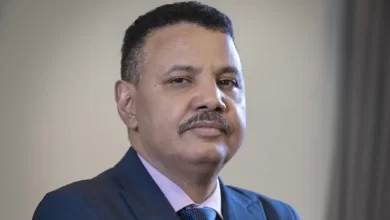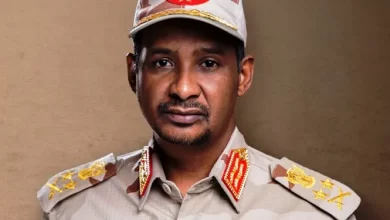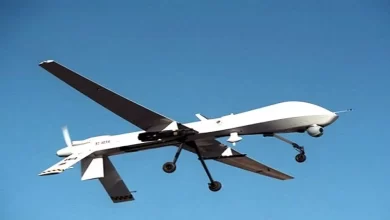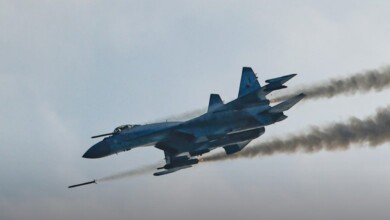U.S. Treasury Doubles Down on Sanctions Against SAF-Linked Jihadist
Formerly Connected With al-Qaeda and Osama Bin Laden

Sudan-based financier of global terrorism Abdelbasit Hamza Elhassan Mohamed Khair (Hamza) – a long-time affiliate of the former regime that today exerts undue influence over the Sudanese Armed Forces (SAF) – was subjected to further U.S. sanctions on Oct. 27 following those placed on Hamas-linked officials and financial networks on Oct. 18.
Earlier this month, the U.S. Department of Treasury’s Office of Foreign Assets Control (OFAC) had designated Hamza a specially designated global terrorist, otherwise known as an “SDGT.”
The latest round of sanctions targeted companies where Hamza is the CEO and beneficial owner — Sudan-based company Zawaya Group for Development and Investment Co. LTD and Spain-based company Zawaya Group for Development Investment Sociedad Limitada, as well as Larrycom for Investment Company, a Sudan-based firm where Hamza is a top executive, which he indirectly owns via Zawaya Group for Development and Investment.
Hamza first gained prominence as a Sudanese security officer during the government of the Revolutionary Command Council for National Salvation (RCCNS-Sudan), which ruled Sudan after the June 1989 coup. Led by former authoritarian dictator Omar al-Bashir, the RCCNS-Sudan evolved out of close collaboration between the SAF and the National Islamic Front. The RCCNS-Sudan supported Osama bin Laden, the late leading sponsor of global terrorism, when he lived in Khartoum in the early 1990s. When bin Laden left Sudan, Hamza assumed control of his assets in the country. A reliable source from the Dismantling the Former Regime Committee, which was set up by Sudan’s transitional government after al-Bashir’s forced deposal, confirmed that Hamza has been a leading financier of terrorist organizations across the Middle East and Africa.
Over the past three decades, Hamza has created and managed a network of companies in Sudan that he has used for money laundering and diverting state resources to support terrorism at home and abroad — most notably, the company Arqin, which established the Arqin border crossing, and Dongla Road, a company linked to major corruption cases.
Hamza’s support for global terrorism, which includes his involvement with Ansar Bait al-Maqdis, or Ansar Al-Quds, an al-Qaeda-linked jihadist militant group based in Sinai from 2011-14, and arms smuggling for Hamas, has raised serious concerns in Sudan and around the world. A source from Sudan’s transitional government with access to state security files confirmed Hamza’s extensive support for global terrorism, emphasizing his significant role in the Muslim Brotherhood and his ties to affiliated coups in Africa and the Middle East.
OFAC imposed the sanctions on Hamza for his financial support to Hamas through Sudan-based and foreign companies linked to the Sudanese Islamic Movement, highlighting his involvement in money laundering and terrorist financing. This action was taken to address the threat that his activities pose to national, regional, and international stability and security.
During the period of transitional civilian rule in Sudan, the Empowerment Removal Committee investigated Hamza’s financial and investment activities, which led to the freezing of bank accounts of several companies under his management. Despite these actions, Hamza was granted impunity after the Oct. 25, 2021 coup orchestrated by the SAF commander-in-chief aimed at restoring the influence of the former Islamist regime.
At the time, the Dismantling the Former Regime Committee successfully recovered Hamza’s shares in various enterprises and properties worth around $2 billion of public funds. However, a legal setback occurred when Sudanese Judge Abu Subiha declared the committee’s decisions null and void, attempting to restore the previous state of affairs.
In conclusion, Hamza’s financing of international terrorism and his connections to extremist organizations both in Sudan and abroad pose a major threat to regional and global security. The actions taken by Sudanese and U.S. authorities reflect the gravity of the situation, emphasizing the need for accountability and justice.





